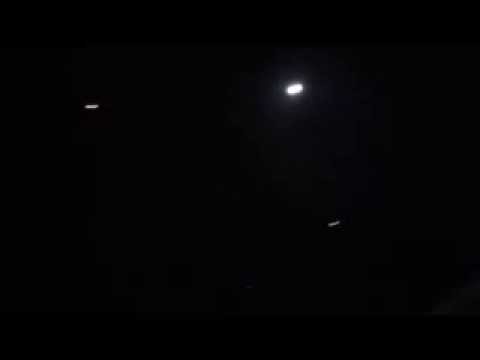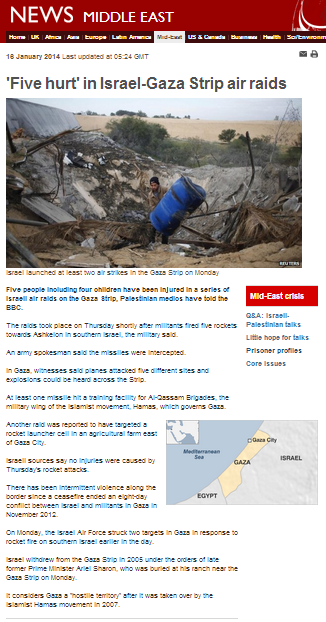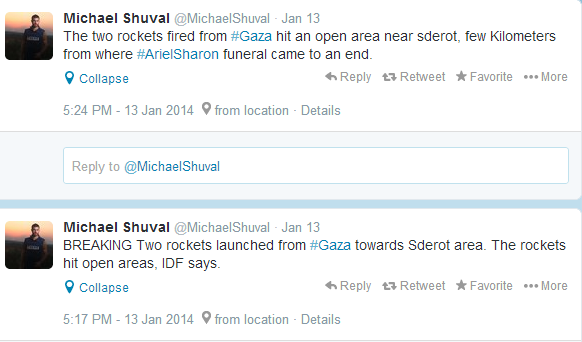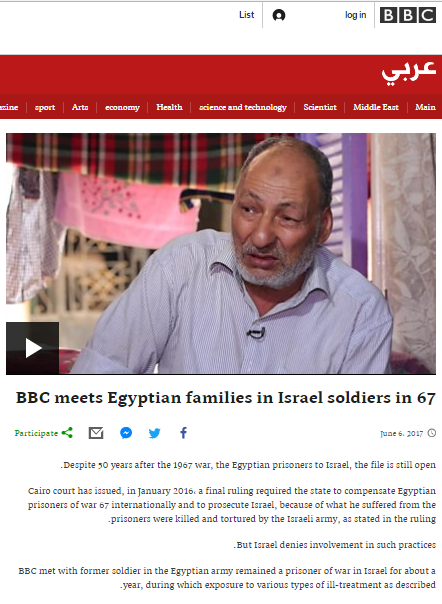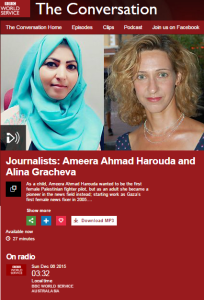Shortly before 2 a.m. on the morning of January 16th residents of the Ashkelon area in southern Israel were woken by the sound of the ‘colour red’ air raid siren warning them to take cover due to incoming missiles from the Gaza Strip.
Five missiles were intercepted by the Iron Dome missile defence system (see a video here), with additional falls thought to have occurred in open areas. Following those attacks, the IDF responded by targeting terror sites in the Gaza Strip.
“Earlier tonight, rockets were launched from the Gaza Strip towards Israel. Five rockets were successfully intercepted by the Iron Dome active missile defense system. In response, the Israel Air Force targeted a terror site, an underground rocket-launcher, a weapon storage facility and a weapons manufacturing site, all located in the northern Gaza Strip. Direct hits were confirmed.“
Visitors to the BBC News website’s Middle East page later on the morning of January 16th found the headline “‘Five hurt’ in Israel-Gaza air raids”, with the link leading to a report with the similar title of “‘Five hurt’ in Israel-Gaza Strip air raids“.
Underneath a photograph captioned “Israel launched at least two air strikes in the Gaza Strip on Monday”, this latest example of ‘last-first’ reporting opens:
“Five people including four children have been injured in a series of Israeli air raids on the Gaza Strip, Palestinian medics have told the BBC.”
Once again, there is no evidence of the BBC having independently confirmed that information before reporting it.
In the report’s second and third paragraphs readers are informed that:
“The raids took place on Thursday shortly after militants fired five rockets towards Ashkelon in southern Israel, the military said.
An army spokesman said the missiles were intercepted.”
In other words, the BBC informs audiences of unverified consequences of Israel’s response to terrorist missile attacks before it – briefly – tells them about the attacks themselves.
The report then goes on to devote three paragraphs (from a total of eleven) to locally sourced accounts of sites targeted, notably avoiding even the BBC’s usual euphemistic ‘militant’ terminology when mentioning Hamas’ Al Qassam Brigades.
“In Gaza, witnesses said planes attacked five different sites and explosions could be heard across the Strip.
At least one missile hit a training facility for Al-Qassam Brigades, the military wing of the Islamist movement, Hamas, which governs Gaza.
Another raid was reported to have targeted a rocket launcher cell in an agricultural farm east of Gaza City.”
The article ends by once again misleading audiences as to the reasons for the designation of the Gaza Strip as “hostile territory”.
“It [Israel] considers Gaza a “hostile territory” after it was taken over by the Islamist Hamas movement in 2007.”
As has been noted here on several previous occasions, that September 2007 designation came about not – as the BBC repeatedly claims – as a result of the Hamas take-over of the Strip in June 2007, but because of the subsequent escalation in terrorism emanating from that territory.
This report also states:
“On Monday, the Israel Air Force struck two targets in Gaza in response to rocket fire on southern Israel earlier in the day.”
Brief mention of those missile attacks on January 13th was also to be found in an article of that date concerning the funeral of Ariel Sharon.
“The Israeli military said four rockets were launched from Gaza on Monday. The first two rockets did not reach Israel, the second two landed on open ground.”
In fact, BBC journalists reporting from Sharon’s funeral were in no need of information from “the Israeli military” as they found themselves in the vicinity at the time of the later missile attacks.
Up to the morning of January 16th 2014, there have been seven separate incidents (some involving more than one projectile) of missile attacks from the Gaza Strip since the beginning of the year, with the BBC having briefly mentioned around half of those attacks mostly in articles related to other subjects and usually in cases in which there has been an Israeli response. There has been no dedicated report on the subject reflecting the fact that seven attacks using fifteen missiles have taken place in sixteen days.
On January 2nd a missile was fired at the Sdot Negev area. The BBC mentioned that incident – and the subsequent Israeli response – in this report.
“The raids were in response to a militant rocket attack on southern Israel on Thursday night, according to Israeli Radio.”
On January 6th a missile landed in the Eshkol region. That incident was not reported by the BBC.
On January 9th three mortars were fired at an Israeli patrol near the border fence with the Gaza Strip and an additional attack was thwarted. The BBC did not report that attack.
On January 11th sirens sounded in the Ashkelon region as a missile was fired from the Gaza Strip. That incident was not reported by the BBC.
On January 13th two missiles were launched from the Gaza Strip in the morning and two additional ones in the afternoon. As mentioned above, both incidents were briefly noted in this BBC article.
In the early hours of January 16th at least five rockets were fired from the Gaza Strip towards the Ashkelon area and those attacks are briefly noted in the article above. 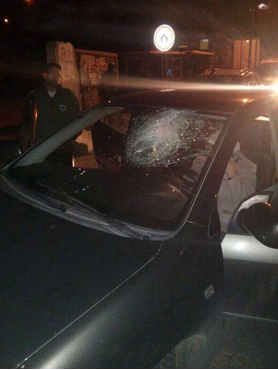
Additional terror-related news not reported at all by the BBC during the first half of January includes the arrest of the perpetrators of the bus bombing in Bat Yam in December and the discovery of a Hamas terror cell planning to kidnap Israelis.
The following incidents (which are just some of many more to have taken place since the beginning of the year) have also received no BBC coverage: stones thrown at a minibus on Route 443, the attempted stabbing of a Border policeman in Jerusalem, a thwarted attack on Migdal Oz, fire-bombs and stones thrown at Israeli cars near Bethlehem, a grenade thrown at an IDF base near Bethlehem, a pipe-bomb thrown at Rachel’s Tomb, fire-bombs thrown at an Israeli bus on Route 60, a man stabbed in the neck in Jerusalem and a drive-by shooting on Route 55.
With the BBC’s record on reporting missile fire from the Gaza Strip standing at just over 50% so far this year and its record on reporting additional forms of terrorism in other districts standing at zero, BBC audiences are clearly not being provided with the background information necessary for them to form a proper understanding of subjects such as the effects of rising terrorism on the current talks between Israel and the Palestinian Authority. Neither are they being given the context necessary to them to properly understand the Israeli responses to terror on which the BBC does chose to report.
Related Articles:
BBC silent on doubling of terror attacks since renewed ME talks

